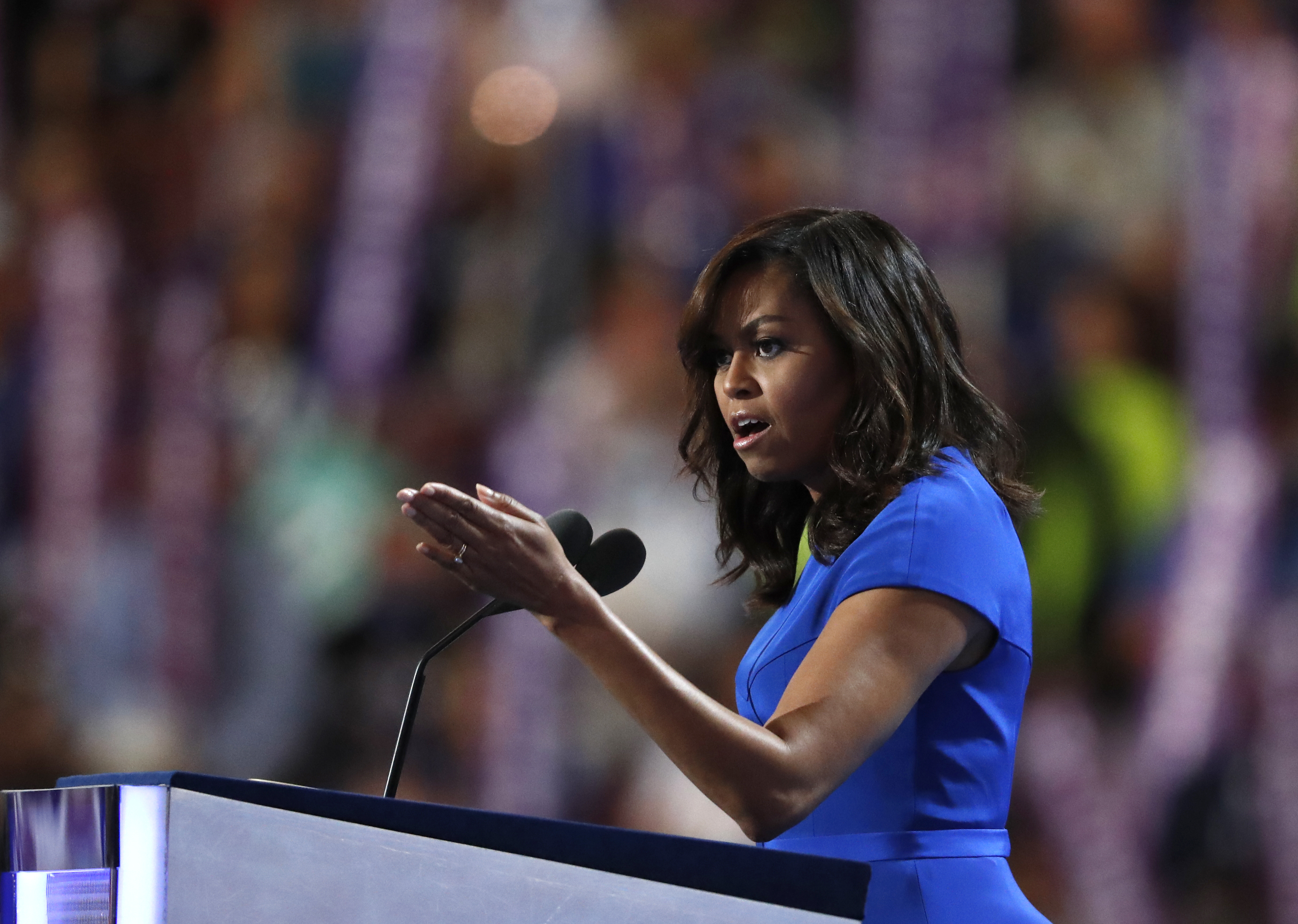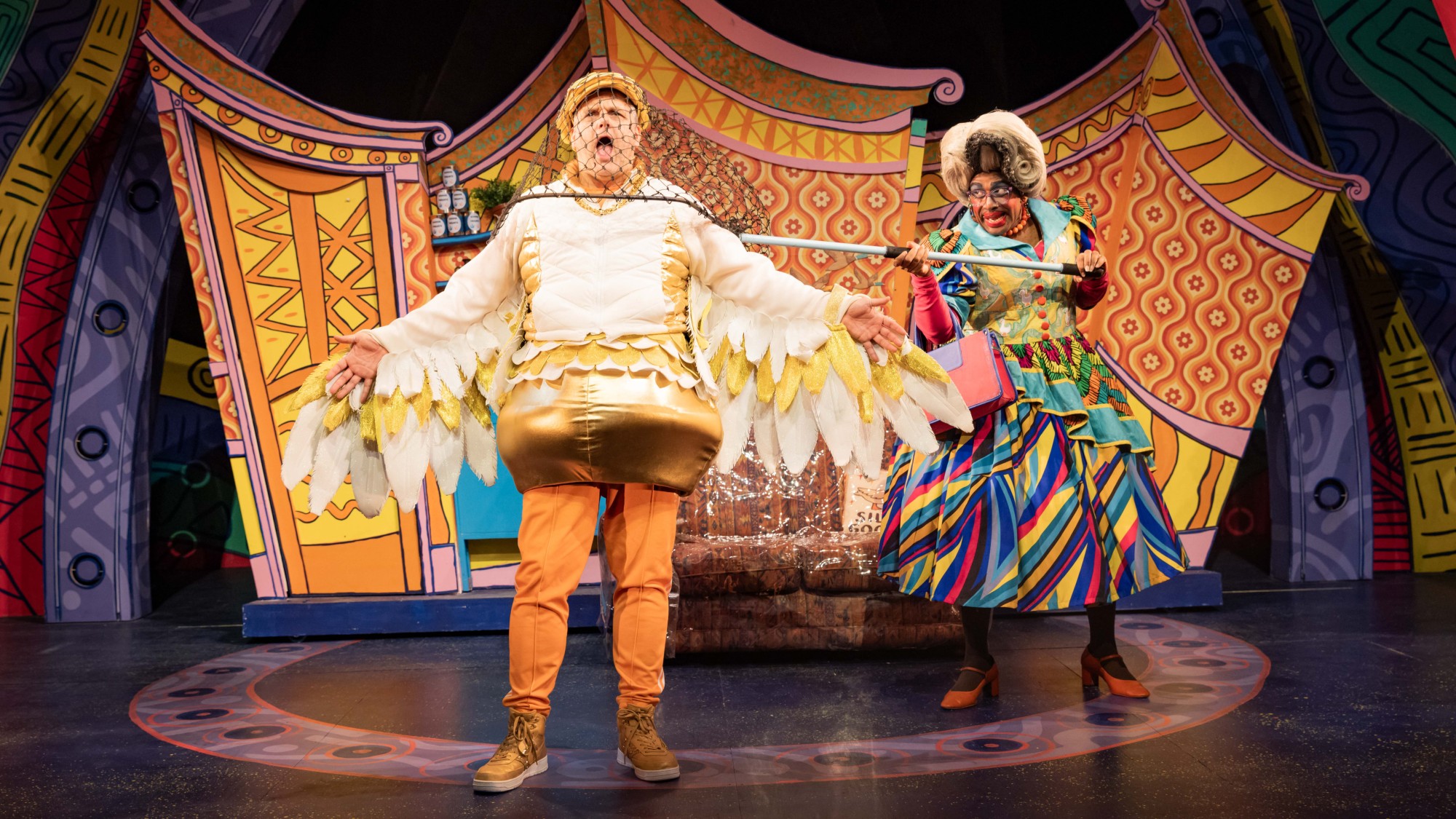Michelle Obama and the great American tradition of political rhetoric
There remains a deep longing at the heart of the human soul for beautiful language. And the first lady delivered.


The word "rhetoric" gets a bad rap. To call something "rhetoric" is usually to dismiss it. Yet for most of the span of our civilization, "rhetoric" was something taught in schools, and thought essential to participation in society. It was long part of the "Trivium," or the classical liberal arts that you had to study to be considered part of civilized society. In eras that had a reverence for text and the written word, the art of not only persuading, but more generally expressing oneself well, was considered of paramount importance.
In America today, our political rhetoric, such as it is, does not exactly live up to the standards set by our forebears.
Read a speech by Abraham Lincoln or Theodore Roosevelt or John F. Kennedy. Then compare it to Donald Trump, who has turned broken English into a political weapon. (Hillary Clinton's speeches aren't exactly Shakespeare either.)
The Week
Escape your echo chamber. Get the facts behind the news, plus analysis from multiple perspectives.

Sign up for The Week's Free Newsletters
From our morning news briefing to a weekly Good News Newsletter, get the best of The Week delivered directly to your inbox.
From our morning news briefing to a weekly Good News Newsletter, get the best of The Week delivered directly to your inbox.
And yet, there remains a deep longing at the heart of the human soul for beautiful language.
Occasionally, you still catch glimpses of it — like in Michelle Obama's rightly acclaimed speech at the Democratic National Convention.
I'm a conservative. I oppose Obama's progressive movement. But you have to give credit where due. It was a great speech, well delivered. More importantly, it was a prime example of the American tradition of political rhetoric.
It was full of implicit critiques of Trump, who was never explicitly named. "When you have the nuclear codes at your fingertips and the military in your command, you can't make snap decisions. You can't have thin skin or a tendency to lash out. You need to be steady and measured and well-informed," the first lady told us. Who could she possibly have in mind?
A free daily email with the biggest news stories of the day – and the best features from TheWeek.com
She also expertly wove the personal and the political, and the political into the grand narrative of American history. The first lady opened her speech by talking about her family, and especially her two beautiful daughters.
Our time in the White House would form the foundation of who they would become. And how well we manage this experience could truly make or break them. [...] That is what Barack and I think about every day as he tried to guide and protect our girls from the challenges of this unusual life in the spotlight. How we urged them to ignore those who question their father’s citizenship or faith. How we insist that the hateful language they hear from public figures on TV does not represent the true spirit of this country. How we explain that when someone is cruel or acts like a bully, you don't stoop to their level. Our motto is, when they go low, we go high. [Michelle Obama]
Having her family in the White House is significant for another important reason, too. "I wake up every morning in a house that was built by slaves," she said. "And I watch my daughters — two beautiful intelligent black young women — play with the dog on the White House lawn."
This is what the speech is about. Michelle Obama's personal story is also the story of America — a story of progress and of emancipation. Within the American progressive movement, there have always been two schools of thought regarding America: those that decry the country for all its crimes, and those who embrace America because it embodies, through its ideals enshrined in documents, and the sweep of its history, those progressive values.
In their rhetoric, the Obamas have almost always been firmly in the latter camp, which has a distinguished history in American political rhetoric. America is a great nation precisely because it is the nation of progressive change.
That is the story of this country. The story that has brought me to the stage tonight. The story of generations of people who felt the lash of bondage, the shame of servitude, the sting of segregation, who kept on striving, and hoping, and doing what needed to be done. [...] Don't let anyone ever tell you that this country is not great. That somehow we need to make it great again. Because this right now is the greatest country on Earth. [Michelle Obama]
And now, of course, let's welcome the next stage of America's progress: "Because of Hillary Clinton, my daughters and all of our sons and daughters now take for granted that a woman can be president of the United States."
The speech has its flaws, of course. Sometimes it veers a bit too much in repeating clunky-sounding platitudes ("the love and hope and impossibly big dreams that we all have for our children"). But overall, it's just beautifully done. The Obamas' personal story, which is of course touching at a human level for anyone with a soul, is woven into a political argument about the election, which itself is woven into the grand American narrative. Nice work. More like this please, from politicians of all stripes.
Pascal-Emmanuel Gobry is a writer and fellow at the Ethics and Public Policy Center. His writing has appeared at Forbes, The Atlantic, First Things, Commentary Magazine, The Daily Beast, The Federalist, Quartz, and other places. He lives in Paris with his beloved wife and daughter.
-
 The UK’s best Christmas pantos
The UK’s best Christmas pantosThe Week Recommends Dive into the festive cheer, even into the new year, with some traditional favourites and modern twists
-
 The longevity economy is booming as people live longer
The longevity economy is booming as people live longerThe Explainer The sector is projected to reach $27 trillion by 2030
-
 Codeword: December 11, 2025
Codeword: December 11, 2025The daily codeword puzzle from The Week
-
 Has Zohran Mamdani shown the Democrats how to win again?
Has Zohran Mamdani shown the Democrats how to win again?Today’s Big Question New York City mayoral election touted as victory for left-wing populists but moderate centrist wins elsewhere present more complex path for Democratic Party
-
 Millions turn out for anti-Trump ‘No Kings’ rallies
Millions turn out for anti-Trump ‘No Kings’ ralliesSpeed Read An estimated 7 million people participated, 2 million more than at the first ‘No Kings’ protest in June
-
 Ghislaine Maxwell: angling for a Trump pardon
Ghislaine Maxwell: angling for a Trump pardonTalking Point Convicted sex trafficker's testimony could shed new light on president's links to Jeffrey Epstein
-
 The last words and final moments of 40 presidents
The last words and final moments of 40 presidentsThe Explainer Some are eloquent quotes worthy of the holders of the highest office in the nation, and others... aren't
-
 The JFK files: the truth at last?
The JFK files: the truth at last?In The Spotlight More than 64,000 previously classified documents relating the 1963 assassination of John F. Kennedy have been released by the Trump administration
-
 'Seriously, not literally': how should the world take Donald Trump?
'Seriously, not literally': how should the world take Donald Trump?Today's big question White House rhetoric and reality look likely to become increasingly blurred
-
 Will Trump's 'madman' strategy pay off?
Will Trump's 'madman' strategy pay off?Today's Big Question Incoming US president likes to seem unpredictable but, this time round, world leaders could be wise to his playbook
-
 Democrats vs. Republicans: who are US billionaires backing?
Democrats vs. Republicans: who are US billionaires backing?The Explainer Younger tech titans join 'boys' club throwing money and support' behind President Trump, while older plutocrats quietly rebuke new administration
